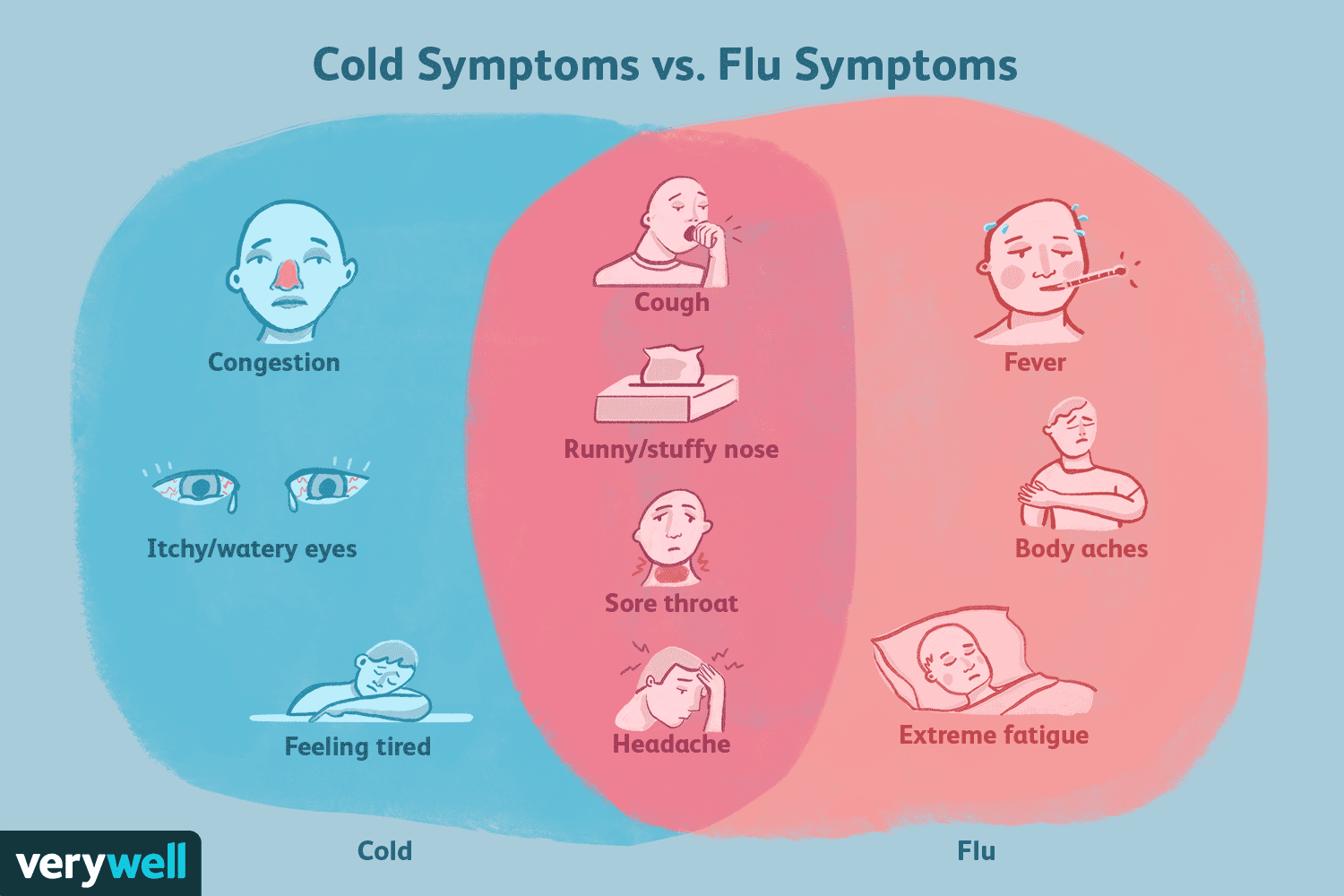The common cold and the flu are both viral infections that affect the respiratory system. They are caused by different types of viruses, such as rhinoviruses, coronaviruses, influenza viruses, and others. Although they have some similar symptoms, such as sneezing, coughing, sore throat, and fever, the flu is usually more severe and can lead to serious complications, such as pneumonia, bronchitis, sinusitis, ear infections, and even death. Therefore, it is important to know how to prevent and treat these infections effectively.
Prevention
The best way to prevent common cold and flu is to avoid getting infected by the viruses in the first place. There is no cure for these infections, so prevention is the key to staying healthy. Here are some preventive measures that you can take:
- Get vaccinated each year to reduce the risk of seasonal flu. The flu vaccine can protect you from the most common strains of influenza viruses that circulate each year. It can also reduce the severity and duration of your symptoms if you do get sick.
- Wash your hands frequently to avoid getting sick and spreading illnesses. Use soap and water or an alcohol-based hand sanitizer to kill the germs on your hands. Wash your hands before eating, after using the bathroom, after blowing your nose, coughing, or sneezing, and after touching public surfaces or objects.
- Avoid close contact with people who are sick. Keep a distance of at least 6 feet (2 meters) from anyone who has symptoms of common cold or flu. Do not share utensils, cups, or other personal items with them. If you have to care for someone who is sick, wear a mask and gloves and wash your hands often.
- Cover your coughs and sneezes with a tissue or your elbow. This can prevent the spread of droplets that contain the viruses. Dispose of the used tissue in a trash can and wash your hands afterwards. Do not cough or sneeze into your hands or into the air.
- Stay warm and rested. Keep yourself comfortable by wearing appropriate clothing and staying in a well-heated room. Get enough sleep and rest to boost your immune system and help your body fight off infections.
Treatment
Most cases of common cold and flu get better without treatment within 7 to 10 days. However, you can take some steps to relieve your symptoms and make yourself feel better. Here are some home remedies and over-the-counter medicines that can help:
- Drink plenty of fluids to prevent dehydration . Water, juice, soup, tea, and other clear liquids can help loosen mucus and soothe your throat. Avoid alcohol, caffeine, and sugary drinks, as they can worsen dehydration and irritate your throat.
- Use saline nasal rinses or decongestant sprays to clear a stuffy nose. These products can help reduce nasal congestion and inflammation by flushing out the mucus and germs from your nose. Follow the instructions on the label and do not use them for more than five days, as they can cause rebound congestion.
- Take pain relievers, such as acetaminophen or ibuprofen, to reduce fever and sore throat. These medicines can help lower your body temperature and ease the pain in your throat. Follow the dosage directions on the label and do not exceed the recommended amount. Do not give aspirin to children or teenagers who have the flu or chickenpox, as it can cause Reye’s syndrome, a rare but serious condition that affects the brain and liver.
- Gargle with warm salt water to soothe a sore throat. Dissolve half a teaspoon of salt in a glass of warm water and gargle for a few seconds several times a day. This can help reduce swelling and inflammation in your throat by drawing out excess fluid from the tissues.
- Use a humidifier or vaporizer to moisten the air. Dry air can irritate your nose and throat and make your cough worse. Adding moisture to the air can help ease breathing and loosen mucus. Clean the device regularly to prevent mold and bacteria growth.
- Eat a healthy diet with plenty of fruit and vegetables . These foods can provide you with vitamins, minerals, antioxidants, and other nutrients that can support your immune system and help you recover faster. Avoid spicy, greasy, or acidic foods that can aggravate your throat or stomach.
Some medicines may have side effects or interact with other drugs that you are taking. Consult your doctor or pharmacist before using any medicine if you have any medical conditions or allergies, or if you are pregnant or breastfeeding. Do not give cough and cold medicines to children younger than 6 years old, as they have potentially serious side effects and no proven benefits.
Conclusion
Common cold and flu are viral infections that can be prevented and treated with some simple measures. By following the tips above, you can reduce your risk of getting sick and ease your symptoms if you do. However, if your symptoms get worse or do not go away after 10 days, or if you have other health conditions that increase the risk of complications, such as asthma, diabetes, heart disease, or immune system disorders, you should seek medical attention as soon as possible.
